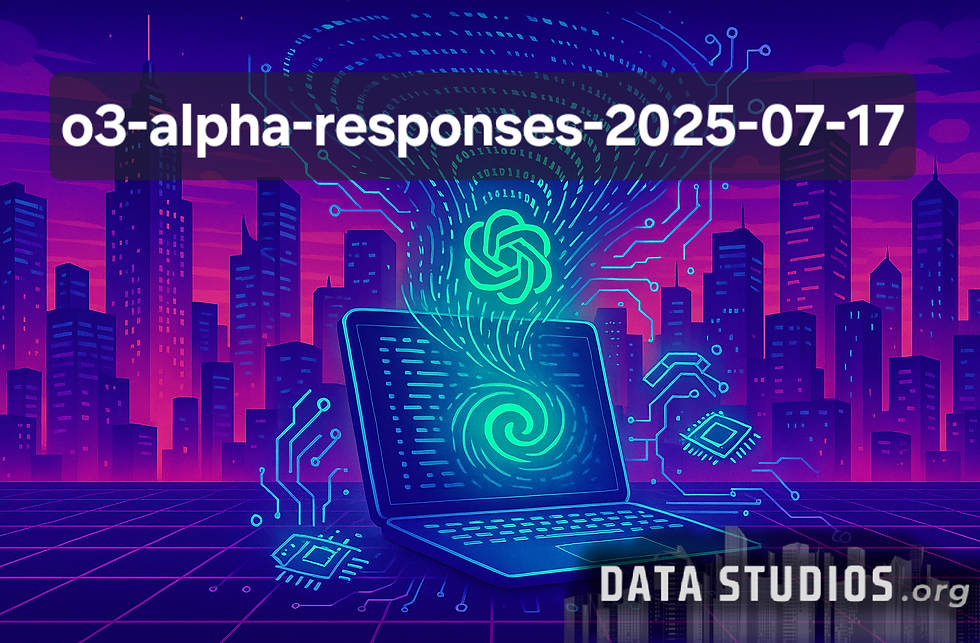A new “o3-alpha” model appears on ChatGPT. The coding upgrade sparks excitement in the AI community.
- Graziano Stefanelli
- Jul 19, 2025
- 2 min read
Updated: Jul 22, 2025

A late-night test on WebArena ignites discussion: the programming capabilities of the new variant surprise users and developers, fueling expectations for the next evolution of OpenAI’s models.
An unexpected sighting reignites developers’ curiosity
In the late afternoon of July 17, some attentive users on language model testing platforms noticed something new in the WebArena leaderboards: the appearance of an unfamiliar label, “o3-alpha-responses-2025-07-17.” Within hours, screenshots and videos of the model in action spread rapidly across Reddit, Threads, and X, accompanied by mixed reactions—enthusiasm, skepticism, and genuine hacker spirit.

The chosen name, o3-alpha, recalls the family of models already known for their speed, but this variant seems set to test something deeper: the ability to turn brief, generic prompts into high-quality working code, whether for web pages, mini-games, or automations.
The difference is clear in the results: smoother, more reliable code generation
The first comments from users with access to the model highlight a tangible improvement in the quality of code solutions provided for programming tasks. Notably, the generation of complete HTML sites, React components, and interactive scripts is faster, more accurate, and more robust compared to previous versions. Some testers have tried minimalist prompts like “Create a memory game in JavaScript,” receiving code that’s not only functional but also well-commented and ready for immediate use.
It’s not yet a revolution visible to the wider public, but this ability to “code on demand” with such fluidity marks another step toward an AI assistant that is increasingly practical for developers, creators, and technical teams.
It’s not GPT-5, but expectations are rising: between incremental upgrades and hybrid architectures
OpenAI has yet to release official details about o3-alpha. Those familiar with their naming conventions know that “alpha” signals an internal testing phase, while the date in the label suggests rapid release and feedback cycles.
The keenest observers point out that this is neither GPT-5 nor a hypothetical “o4” model, but rather an evolutionary branch of the well-known GPT-4o. The most likely theory is that o3-alpha is a test version focused on code generation, possibly an early proving ground for the future unification of conversation and software development capabilities into a single architecture.
The community debates: a fleeting upgrade or a new standard for AI models?
As always with new models, online discussion swings between sky-high expectations and world-weary irony. Some developers, after trying the new variant, speculate that OpenAI is speeding up its release pipeline to test specific features ahead of a broader rollout. Others wonder if the real innovation will arrive only with the next generational leap.
For now, the arrival of o3-alpha is a clear signal: the race between AI labs is no longer just about power, but above all about the ability to deliver tools that are truly useful for everyday work. For anyone writing code today, these new possibilities are hard to ignore.
_______
FOLLOW US FOR MORE.
DATA STUDIOS


